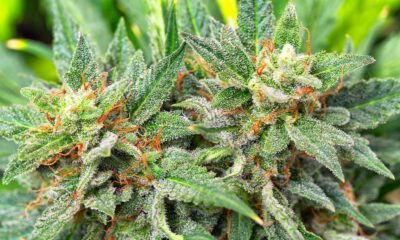
Joint Opinions
Why Big Marijuana Could Never Be as Evil as Big Tobacco
With over half the United States having legalized marijuana for medicinal or recreational purposes, there are some increasing concerns that the cannabis industry is poised to become the second coming of Big Tobacco.
The comparisons made between cannabis and tobacco, mostly due to the fact that they are both products that are grown and can be smoked, have caused some health professionals and other seemingly concerned parties to speculate towards a public health nightmare as soon as all of this legalization business becomes even more widespread.
“I’m concerned that we’re going to create a new tobacco epidemic,” Stanton Glantz, director of the Center for Tobacco Control Research and Education at the University of California, told Healthline. “With the advent of mass marketing, combined with consumer product engineering, I think it’s going to be a public health disaster.”
No one, not even most cigarette smokers, would debate that smoking tobacco isn’t hazardous to human health. Anyone who needs to be convinced of this can simply scan the website for the Food and Drug Administration (FDA) and study the list of almost a hundred chemicals found in cigarette smoke, including Formaldehyde, that are classified harmful substances. The American Heart Association corroborates these claims, suggesting that out of the thousands of chemical components found in cigarette smoke, there are hundreds of them are a detriment to the well being of human existence.
Some argue that it is the additives the tobacco companies incorporate in cigarette production that makes them so bad, but even though those products marketed as “natural” can be just as harmful, according to a recent press release issued by the FDA.
There is some evidence, however, that smoking cannabis poses some health risks to those who ingest their daily THC intake in this manner. Yet, these hazards are due primarily to the chemistry that takes place when plant matter is burned. However, unlike tobacco, cannabis is typically not consumed with the same frequency as cigarettes. The average smoker consumes around six cigarettes per day, with some long terms users burning up between a pack or two per day.
A 2013 report in The Seattle Times found that the average Washington smoker consumed 123 joints per year – roughly a joint every three days. Taking this into consideration, it would be difficult for a health expert to suggest that smoking cannabis even remotely threatens the well being of public health in the same manner as cigarettes. Even in the case of the most habitual cannabis user, one who has succumbed to the products extremely low rate of addiction, there is still very little chance that this person could or would even need to smoke weed at the same rate as a heavy tobacco smoker.
Of course, the cannabis industry comes with a certain product flexibility that has not been well received in the case of Big Tobacco – edibles. While smoking cannabis is still the preferred form of ingestion, cannabis-infused edibles have become a large, lucrative market in places where pot products are being legally sold. In fact, earlier this year, reports indicated that during the first year of Colorado’s legal recreational market, dispensaries sold nearly 5 million edible products – almost 2 million sold in the medical sector and about 3 million on the recreational side.
What’s more is there are now entire businesses being built on the concept of supplying people and even pets with edible forms of cannabis. When was the last time you heard a smoker admit that they prefer chewing nicotine gum to smoking cigarettes? Sadly, the edible nicotine market just doesn’t cut the muster with the American consumer.
The threat of Big Tobacco’s practices eventually rubbing off on the cannabis industry are not likely to pose a significant threat to public health in the same way as tobacco. Some health experts, like Dr. Glantz, are worried that the bigger the industry becomes, the more likely companies are to begin incorporating the use of harmful additives to raw cannabis, similar to those used in tobacco, that will make the product equally as dangerous as cigarettes. However, at least the industry has a considerable enough market potential in regards to edibles products, oils and tinctures to provide the more health conscious cannabis consumer with options that will prevent them from taking unnecessary health risks.
Do you think the cannabis industry could become like Big Tobacco? Tell us below.


























